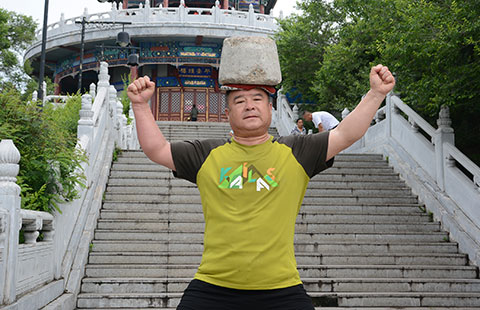China to end reliance on organ donations from prisoners
(Xinhua) Updated: 2012-11-23 10:47GUANGZHOU - China's reliance on organ transplants from condemned prisoners will end within two years, as a human organ donation trial project has proven successful, a senior health official said on Wednesday.
From March 2010 to the end of September 2012, the trial involved 465 donation cases, which resulted in 1,279 organs being donated by members of the public, said Huang Jiefu, vice-minister of health.
Huang was speaking in the capital city of South China's Guangdong province.
The move means there will be less reliance on the use of organ donations from prisoners that have been sentenced to death, Huang said.
According to a report by chinanews.com, the project, jointly established by the ministry and the Red Cross Society of China, resulted in more than 100 organ transplants in Guangdong during the trial period. The province had the highest number of donations.
"We must distance ourselves from the reliance on harvesting organs from prisoners and make the undertaking become sustainable," Huang said of the trial program. "We must establish an organ donation system that is in line with Chinese social ethics and China's national conditions and based on voluntary donations from the public."
The move has won wide applause from Chinese netizens.
"The practice of transplanting organs from condemned prisoners is against the country's national image as a world political, economic and cultural power," wrote Internet user "wawapipi."
"The decision made by authorities is a big step forward toward China's higher level of civilization," the user added.
Internet user "hushuli" said the move is a courageous and wise breakthrough. "The establishment of an organ donation system that is fair, transparent and in line with Chinese social ethics is crucial for the future of China," the user wrote.
Figures provided by Huang show that of the 465 cases involved in the trial project, 47.5 percent were donations made after cardiac death and 43.5 percent were donations made after cardiac and brain death. Organ donations after brain death accounted for just 9 percent of the total.
"With the development of society, brain death should be recognized and accepted by more and more people in China," wrote "Hu Yongming."
Brain death, though accepted in more than 90 countries worldwide, is not legally acknowledged in China. Traditionally, Chinese people determine a person's death based on cardiac death.
"Donations after brain death should become the mainstream for organ donations," said Yuan Xiaopeng, an organ transplant expert with the No 1 Affiliated Hospital of Sun Yat-sen University.
In 2007, the State Council issued its first regulations on transplants, banning organizations and individuals from trading human organs.
The 2011 amendments to China's Criminal Law also introduced three clauses dedicated to organ-related crimes, under which convicted organizers of organ trafficking activities may face fines or prison terms of more than five years.
Under the law, criminals convicted of "forced organ removal, forced organ donation or organ removal from juveniles" could face punishment for homicide.
- Ruling may 'open Pandora's box'
- Poverty funds facing stiffer supervision
- Guns a growing factor in narcotics enforcement
- China issues disaster alerts
- Ministry orders removal of substandard running tracks
- HK most expensive for expats
- Agency lists tiny hallway for sale: 1.5 million yuan
- Li vows to boost support for real economy
- 2020 health plan to ease burden on people in poverty
- US urged not to rock the boat by flexing its muscles










